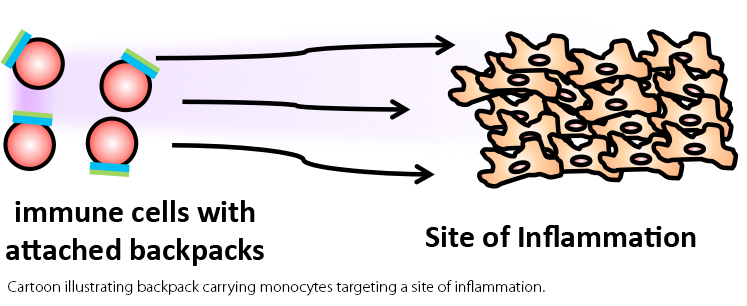
In collaboration with Professor Mitragotri at UCSB, MIT MRSEC researchers have moved one step closer to using a bodies natural immune system to ferry drug carrying backpacks to disease sites. In this work, synthetic backpacks were attached to monocytes and injected into a mouse. The backpack carrying monocytes were able to successfully target and accumulate in inflamed tissues, demonstrating that their native function was not impaired by the synthetic payload. The ability to selectively target disease sites in a body while leaving healthy cells unharmed is an important goal of modern drug delivery science. These promising results further support the idea that cellular backpacks can be used to help the immune system fight diseases such as cancer.
The backpacks contain a cargo carrying region for drugs and a cell attachment surface that connects them to the monocytes with antibody binding. We have demonstrated that the backpacks on cells are not removed when the cells squeeze through endothelial layers and also remain attached when the cells differentiate from monocytes to macrophages. This demonstrates the the attachment of a synthetic entity to a immune system cell does not alter the cells native functions. These properties are critical to the success of this approach as a drug delivery system.